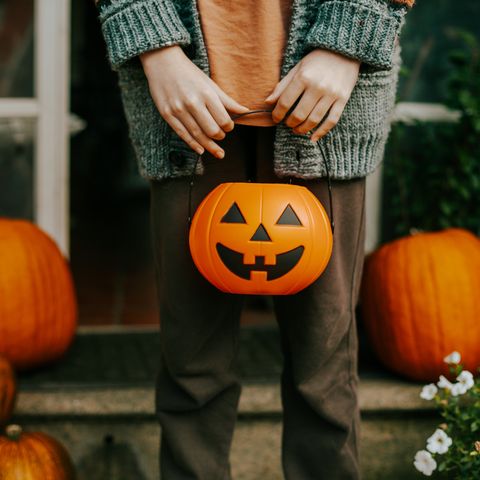Trick-or-treating will certainly look different this Halloween. While some parents may make the tough decision to keep their kids home, some may have no choice at all — places like Salem, Massachusetts have already canceled most of their Halloween events in wake of the coronavirus outbreak. Still, there’s hope that some states will keep up the tradition — even if it looks and feels different.
Even if trick-or-treating takes a more unconventional route this year, some things will likely remain the same, including the age-old question: How old is too old to trick-or-treat?
While there’s no definitive answer, Treetopia, a Christmas tree company, surveyed 700 respondents in 2019 and found that 1 in 4 Americans think you’re never too old to go trick-or-treating on Halloween. However, the general consensus was the teenage years are when kids should stop trick-or-treating — 18.7 years, to be exact.
Chesapeake, Virginia takes it even one step further, and made it illegal — you heard that right — for older kids to participate. The city’s ordinance, which was updated in 2019, states that: “any person over the age of 14 years shall engage in the activity commonly known as “trick or treat” or any other activity of similar character or nature under any name whatsoever, he or she shall be guilty of a Class 4 misdemeanor.” After receiving some backlash, the city clarified that a teenager trick or treating with siblings or friends will be fine.
And sure, while it might seem like bigger kids could be stealing the holiday (okay, candy) from the little kids, Keri Wilmot, an ambassador for The Genius of Play and a pediatric occupational therapist, argues that trick-or-treating is fair-game … unless you’re a parent. “[You’re] never too old to trick-or-treat, unless you’re the parent who carries around your own bag for candy and sneaks your hand into the candy bowl when accompanying your own children around the block!”
It’s also important to remember that there might be other reasons why older trick-or-treaters are joining the group: “For example, the older teenage group you find at the front door might include a child who just moved to a new neighborhood and is out with new friends for the first time,” Wilmot explains. Along the same lines, trick-or-treating is also the perfect opportunity for older and younger kids to bond. “Older kids can practice their leadership and nurturing skills as they guide younger siblings to the best houses on the block, and maybe snag a few mega chocolate bars of their own along the way,” says Anna Yudina, director of The Genius of Play Initiative at The Toy Association.
As kids get older, of course, they should practice proper manners while trick-or-treating. Along with saying “please” and “thank you,” any older trick-or-treaters (think: 13 and up) should dress the part. “You can continue to trick-or-treat into your teen years as long as your teenage Halloween costume gets proportionally better as your age increases,” says Nick Leighton, etiquette expert and host of the Were You Raised by Wolves? podcast. “If you’re 19 and just walking around with some bunny ears from CVS and a pillowcase trying to get free candy, that’s not okay.”
This content is imported from {embed-name}. You may be able to find the same content in another format, or you may be able to find more information, at their web site.
So, if you or your kids are 13 and up, follow this trick-or-treating rule of thumb: Practice good manners, wear a great costume, stay safe, and have fun. Wilmot says it best: “As long as everyone is being kind and respectful, how can we put an age limit on fun?”
This content is created and maintained by a third party, and imported onto this page to help users provide their email addresses. You may be able to find more information about this and similar content at piano.io

